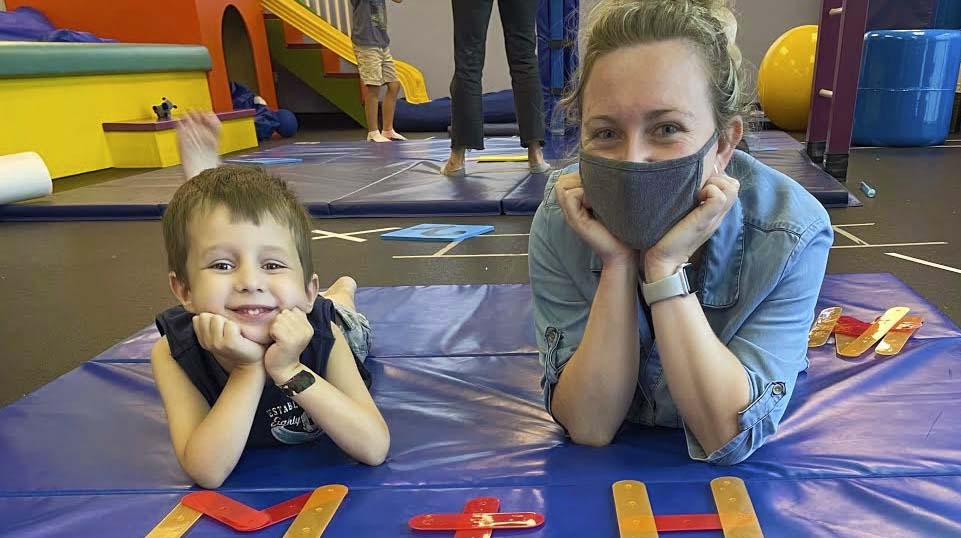Blog

Life After Getting An ASD Diagnosis
A diagnosis can feel overwhelming for parents. But with the right support, children with ASD can thrive. Applied behavior analysis (ABA) therapy, which uses positive reinforcement to build communication, social, and self-care skills has been proven to significantly accelerate developmental growth among children with ASD who typically show concerning signs of delayed development. ABA is tailored to your child’s needs allowing your child to adapt and learn social techniques and behavior management much faster.
ABA therapists focus on your child’s strengths and create a calm, structured environment. Use visual aids like picture schedules so they know what to expect. Praise them for their achievements, big and small. Encourage play with siblings or friends. Limit screen time and sensory stimulation. Work on life skills to promote independence. Break tasks into smaller more manageable steps and above all, exercise patience with your child.
After the Diagnosis
Receiving an autism spectrum disorder diagnosis for your child can trigger overwhelming emotions and concerns about the future. These initial reactions are normal after getting an ASD diagnosis, which indicates developmental delays caused by differences in the brain. But remember, your child is still the same wonderful, unique person. With early applied behavior analysis and other intervention services tailored to their needs, children with ASD can gain skills to thrive and live fulfilling lives.
Focus on learning about autism spectrum disorders and finding resources. Develop an individualized treatment plan involving therapies like ABA, which uses positive reinforcement to build communication, social, and self-care skills. Connect with other parents facing similar challenges. Work with your child’s school to get accommodations and celebrate their strengths.

Though an ASD diagnosis means facing certain difficulties, your child can achieve their full potential with family support, early intervention, and therapies to address problem behaviors and develop cognitive, language, motor, and academic abilities. This is a journey, but with love and the right help tailored to your child’s needs, they don’t have to walk it alone.
Understanding An ASD Diagnosis
Autism spectrum disorder is a developmental disability caused by differences in the brain that affect communication, social interaction, learning, and sensory processing. The wide variation in challenges and strengths across the spectrum reflects ASD’s impact on each child.
Some common characteristics include difficulty with back-and-forth conversation, repetitive behaviors and rigid routines, highly focused interests, and sensory sensitivity. Many with ASD experience developmental delays in language, motor skills, self-care, and intellectual abilities. The presentation of ASD is unique to each child, ranging from mild to severe.
The good news is that early applied behavior analysis and intervention services can make a profound difference. Therapies like ABA use positive reinforcement to help children with ASD develop skills to address problem behaviors, communicate, interact socially, and live fulfilling lives tailored to their needs and strengths. Though symptoms vary, with the right support children across the autism spectrum can thrive, achieve their potential, and contribute their exceptional gifts.
The Role of ABA Therapy in Post-Diagnosis Support
Applied behavior analysis is one of the most effective therapies for autism spectrum disorder. ABA provides essential support and profoundly benefits children after an ASD diagnosis.
ABA applies scientific principles to build real-life skills, addressing developmental delays. Goals involve reducing problem behaviors that interfere with learning and teaching communication, social, self-care, and academic skills. ABA programs are customized through individualized treatment plans tailored to each child’s unique needs. Lessons use positive reinforcement to motivate and reward incremental achievements. ABA therapists coach parents on using these techniques at home.

Studies demonstrate ABA greatly improves language, cognitive abilities, school performance, and adaptive behaviors for children across the spectrum while decreasing challenging behaviors. Early intensive ABA therapy after diagnosis leads to the best outcomes. Though responses vary, most children make significant developmental gains through ABA in communication, social interaction, and emotional regulation. By targeting specific deficit areas, ABA allows children with ASD to gain skills for greater independence and improved quality of life.
Setting Goals and Creating Individualized Treatment Plans
After an autism spectrum disorder diagnosis, ABA therapists thoroughly evaluate your child across developmental domains to identify strengths, challenges, and priority skill areas to target. Collaboratively, you develop an individualized treatment plan outlining incremental goals tailored to your child’s unique needs. ABA tracks progress, so goals adapt as your child masters new skills. Setting small, achievable targets and celebrating each milestone motivates learning. ABA’s customized approach focuses on positive reinforcement to help your child gain real-life communication, social, and self-care skills. This promotes independence and improves the quality of life for children with ASD.
Progress and Development With ABA Therapy
ABA therapy has helped many children and adults on the autism spectrum achieve their goals. Several studies demonstrate that ABA techniques effectively reduce problem behaviors like repetitive motor movements, aggression, or self-injury in children with ASD. The highly tailored approach addresses the root causes behind these disruptive behaviors.
ABA has been proven to build communication skills in those with autism spectrum disorder. Breaking language into small, learnable steps and providing consistent positive reinforcement helps children develop critical abilities like making requests, conversing, and using functional spoken language.
Research shows ABA greatly improves social skills and social cognition for those with developmental delays from ASD. Individualized lessons teach appropriate interactions, reading social cues, initiating play, taking turns, and other abilities to improve relationships and social functioning.
An ASD diagnosis does not define your child. With family support and therapies like ABA from Westside, they can achieve their potential. This is a journey, but you don’t have to walk it alone. Contact us to continue discussing resources and strategies to help your child thrive, or read more about it in other articles on this blog.




